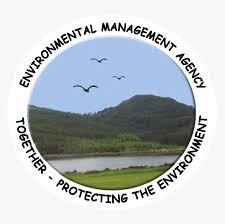
THE Environmental Management Agency (Ema) has been urged to take decisive action in preserving wetlands, which are facing increasing threat from human activities.
The call was made by Matobo Conservation Society chairperson Gavin Stephens in Bulawayo during the official launch of a wetlands project during the weekend.
“Wetlands play a crucial role in maintaining ecological balance, supporting biodiversity and ensuring water security. However, rampant illegal development, pollution and unsustainable use are putting these vital ecosystems at risk,” he said.
Stephens said the wetlands prevent flash flooding and almost all rivers have a source of wetlands hence destroying them results in destroying rivers.
“There are seven sites that have been recognised by United Nations Educational, Scientific and Cultural Organisation (Unesco) as Ramsar areas, though I am unsure that two of these sites really qualify as a wetland.
“Of these seven, only Victoria Falls is in the western part of the country — and we have to ask ourselves why that is? Of course western Zimbabwe is the drier part of the country, and so wetlands would not be expected in this area — but it is precisely because this is the dry part of the country that wetlands need to be recognised and protected,” he said.
Stephens said there was a wetland within Matobo but it had been destroyed by human activities and failure by Ema to preserve it.
"A three-year perennial drought came to an end. In 2024 the wetlands were dry but this year they have recovered hence the need to preserve them so that we can harness water,” he added.
- Veld fire management strategies for 2022
- Stop harassing media for reporting truth
- ‘Israel trying to ignite a religious war in occupied Jerusalem’
- Africa Ahead spruces up 25 healthcare centres in Manicaland
Keep Reading
Stephens said Matobo Rural District Council sought to establish market gardens on wetlands.
“Why is this being proposed given recent history? Why would the authorities seek to defy our environmental legislation in this manner?
“Where is Ema to protect the stream and river banks? Why is farming being practised within 30 metres of the stream banks? It is critical that we reach out to those in these areas and encourage the local communities to manage and protect their wetlands, because they are the ones who will suffer most when the rains fail and the wetlands are destroyed,” he said.
Stephens said there had been a number of projects in the Matopo Hills to restore wetlands.
“Supported by the local community, these have seen impressive results — indeed these protected areas held water all through 2024. There has been resurgence in biodiversity in these protected areas — some at Ntunja, others on Morning Glory with work being done by Dambari Wildlife Trust and the Matobo Conservation Society,” he said.
“It is hoped that recognition will be given to the Matopo Hills and that it may become the 8th Ramsar Site in Zimbabwe. We hope that this display will be a living memorial to our country’s hosting of the 15 International Convention on Wetlands and that the event does not just pass as a talk show but that we will fully embrace and act upon the need to turn a page, and work to protect our heritage.”










